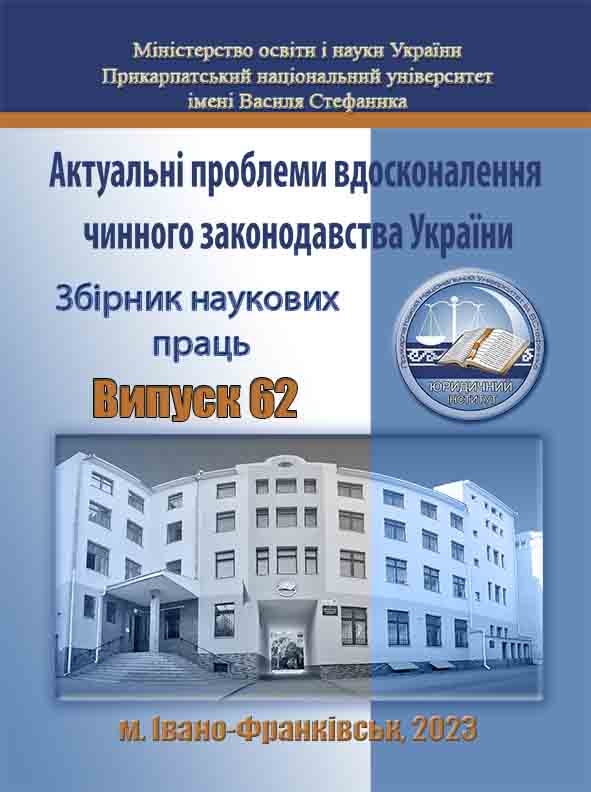Participants of criminal law policy in the field of ensuring the protection of criminal justice bodies
DOI:
https://doi.org/10.15330/apiclu.62.1.156-1.163Keywords:
criminal law policy, criminal justice bodies, subjects of criminal law policy, participants in criminal law policy, advisory bodies, scientific advisory councils, specialized educational institutions.Abstract
The article examines the system of participants in criminal law policy in the specific field of ensuring the protection of criminal justice bodies. Based on the analysis of scientific works by leading scholars in the field of criminal law policy, particularly P.L. Fris and I.V. Kozych, the author examines existing approaches to distinguishing between subjects and participants in criminal law policy. Special attention is paid to the functional approach to such differentiation, according to which subjects are divided into two categories: subjects of creation and subjects of implementation of criminal law policy. The article substantiates that criminal justice bodies, by their functional purpose, belong to the subjects of implementation of criminal law policy in the studied field. The author proposes to expand the traditional understanding of the range of participants in criminal law policy by including advisory and consultative bodies. Based on the analysis of the legal framework, the author systematizes existing advisory bodies both at the level of creative subjects (Scientific Advisory Council under the Chairman of the Verkhovna Rada of Ukraine, Commission on Legal Reform under the President of Ukraine, scientific advisory councils under the Supreme Court and Constitutional Court of Ukraine) and at the level of subjects implementing criminal law policy (methodological councils under prosecution bodies, Scientific Advisory Council under the National Bar Association of Ukraine). Special attention is paid to specialized educational institutions in the system of criminal justice bodies, such as the National School of Judges of Ukraine, the Training Center for Prosecutors of Ukraine, and the Higher School of Advocacy. The article argues that although these institutions cannot directly form or implement criminal law policy, they have a significant influence on these processes through scientific and methodological support, personnel training, and professional development.


